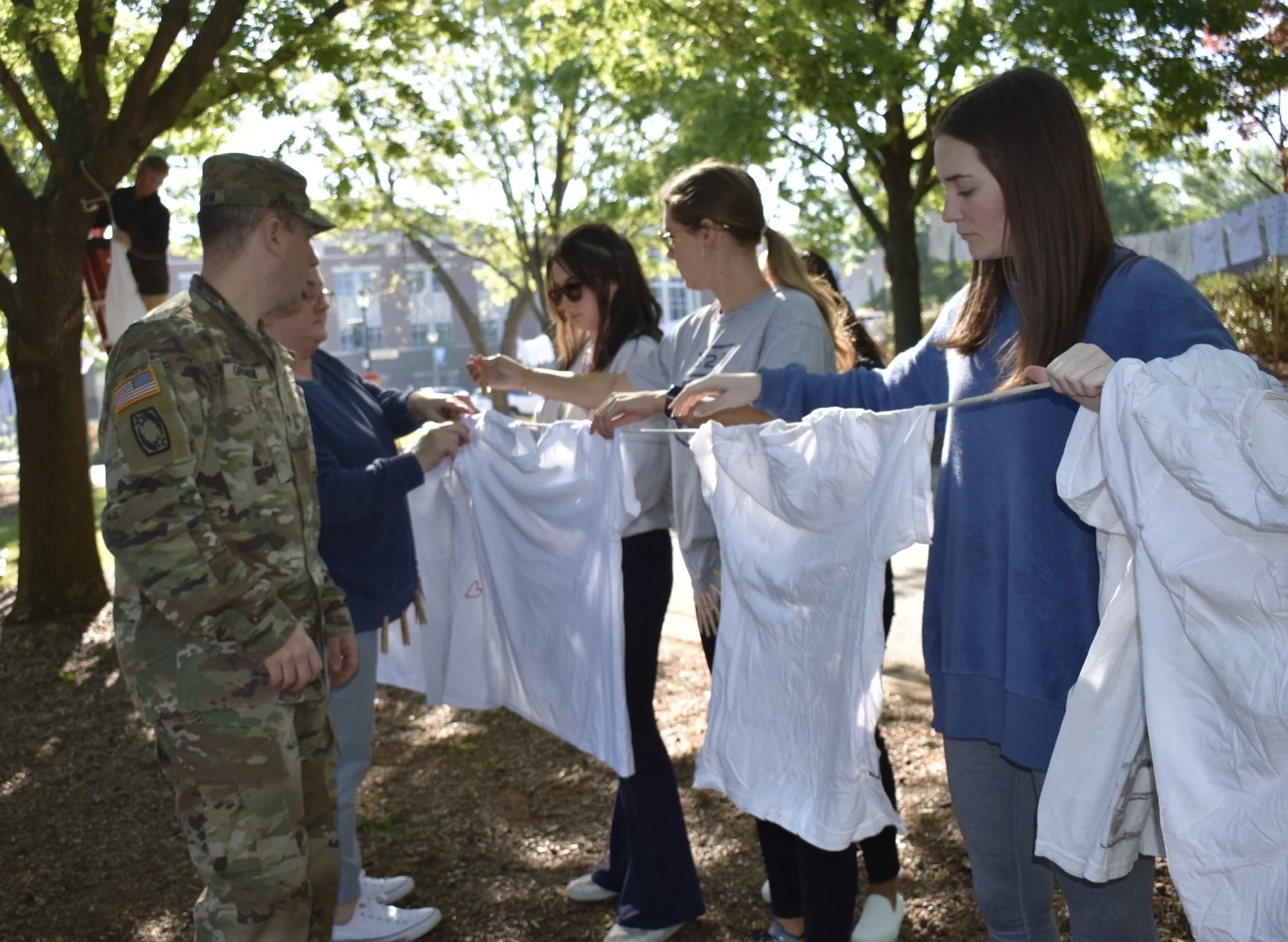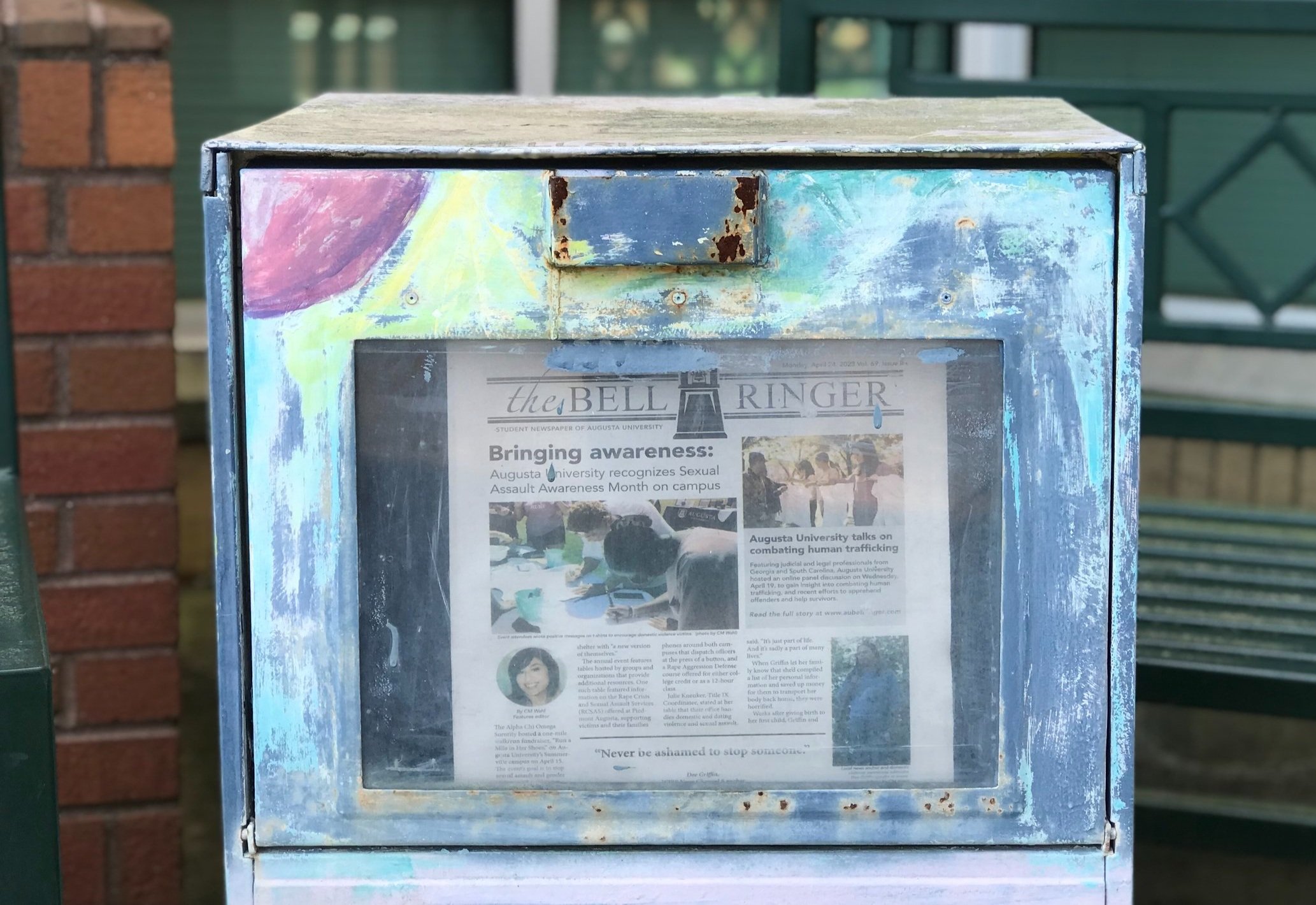Augusta University talks on combating human trafficking
By Liz Wright | News editor
Featuring judicial and legal professionals from Georgia and South Carolina, Augusta University hosted an online panel discussion on April 19 to gain insight into combating human trafficking, as well as recent efforts to apprehend offenders and help survivors.
Among the panelists were Amy Hutsell, who is the director of the Human Trafficking, Child Abuse and Sexual Assault program at the Criminal Justice Coordinating Council of Georgia and Monique Garvin, the deputy director of the Violence Against Women Act and Human Trafficking programs at the South Carolina Attorney General’s Office.
“The federal definition is ‘forced labor or human trafficking is the recruitment, harboring, transportation, provision or obtaining of a person for labor or services, through the use of force, fraud or coercion for the purpose of subjection to involuntary servitude, peonage, debt bondage or slavery,’” said Hutsell.
Garvin said trafficking does not always result in the exchange of money, but it can often occur for other valuable goods or services, such as electronics, land, food or even the promise of safety.
Both Garvin and Hutsell said many people have wide misconceptions when it comes to human trafficking; they often think there are three parties involved – buyer, human trafficker and victim. For example, Hutsell referenced a recent case Georgia had involving a parent trafficking their child in place of a car payment.
“Now we say it can be any person," said Garvin. “A mom who is offering up her daughter to the landlord for instance. So it definitely defers and changes. “We want to debunk the conception that you have to be harbored, or trafficked or taken out of the country.”
From popular movies like Liam Neeson’s famous role in “Taken,” Garvin said people nationally have the tendency to think strangers are always the root cause of being trafficked.
“We all often reference that movie as a good way for people to think about trafficking, or that you’re going to be taken from the street in a white van, or picked up from Walmart,” she said. “I’m not saying that can’t happen, but the likelihood of it happening that way is a lot lower than you might expect. The relationship between the victim and trafficker is important to think about, because oftentimes it isn’t going to be a stranger.”
Similar to cases involving abuse, rape or sexual assault, Garvin said traffickers often spend an extensive amount of time grooming victims – spending time getting to know them, and becoming someone the victim trusts.
“From the outside, it can make it seem like the victim is not a victim. So we truly want to expand people’s thinking for human trafficking,” said Garvin. “When it affects minors, there are so many different nuances, because of how much more vulnerable they are … and these relationships are oftentimes familial too.”
However, Hutsell and Garvin said it was also important to educate outsiders on how adults can also be victims of human trafficking. Both women acknowledged that many have a hard time picturing victims who do not fall under the children or young adult category, and how these victims are often found from arrests related to a different crime.
“Trafficking is an emotional and mental bondage that keeps victims in the situations that they are in,” said Hutsell.
Augusta University professor of criminal justice and gender studies Allison Foley said, like misconceptions of attackers jumping out in the dark and grabbing women, the general public have been trained by different media to have an unlikely narrative of how women are often assaulted.
“As teachers, practitioners and activists, we have to enforce the facts that people are most likely to be victimized by other people they know,” she said. “Sex trafficking happens so much more frequently in that context as well.”
The discussion then continued turning towards how the statewide gang problem is also closely associated with trafficking. Hutsell said gang members can be targeted when they are young, and groomed to become extremely loyal to the gang as a means for survival. Over the years, Hutsell and Garvin said police officers have been trained to thoroughly investigate gang members in order to identify and halt more cases of human or sex trafficking.
To end off, Hutsell said she believes parents and other guardians need to further educate children, especially males, as to how to properly treat and value other human beings and create an environment where children are comfortable having open conversations about relationship expectations.
“Don’t be afraid to have those conversations,” she said. “They are hard conversations sometimes, but you’re doing your child a huge service, and essentially your society as well by educating your boys and girls.”
April is recognized as Sexual Assault Awareness Month. At top of page, advocates on campus participate in The Clothesline Project on as a way to raise awareness about abuse. (photos by Liz Wright)
Contact Liz Wright at elizwright@augusta.edu.





